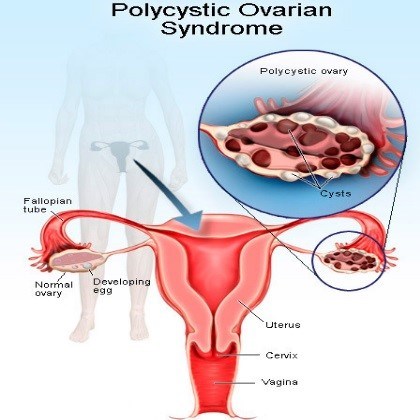Posted 4 September 2017
in Men's Health, Womens health
 “Pain so severe you
just want to die” –and yet
affecting approximately as many people in the UK as the widely known condition
multiple sclerosis (MS) (1), any mention
of cluster headaches will likely draw blank looks from most of the general
population. Given this, it’s hardly surprising that many sufferers feel alone in
their battle with the condition. (1)
“Pain so severe you
just want to die” –and yet
affecting approximately as many people in the UK as the widely known condition
multiple sclerosis (MS) (1), any mention
of cluster headaches will likely draw blank looks from most of the general
population. Given this, it’s hardly surprising that many sufferers feel alone in
their battle with the condition. (1)
What are cluster
headaches?
Cluster headaches (CH) differ vastly from a regular (tension)
headache. Attacks (individual headaches) come on very suddenly. During an
attack, sufferers experience a sharp, burning pain of excruciating intensity on
one side of the head. (2) In fact, women who have both given birth and have CH
have branded the latter as worse. (3) The pain is typically centred around the
eye, but may affect other parts of the head or neck. The side affected may
change between attacks, or less commonly, in the same attack. (4) Other
symptoms occurring alongside the headache can include a red, watering eye, a
congested or runny nostril, facial sweating, a droopy eyelid and a constricted
pupil. (2)
Unlike migraine sufferers who usually want to lie down and
rest during an attack, those with CH may pace around, rock their head or even
resort to banging their head against a wall due to the severity of the pain.
(2)
Attacks normally take place in bouts, or ‘clusters’, which
persist on average for a period of four to twelve weeks. Within a cluster,
attacks normally happen every day at the same time of day, and may occur
multiple times a day, beyond eight in some cases. (2)
The period in between clusters is known as remission, which
may last years before attacks return. However, many sufferers find they
experience clusters around the same time every year.
In some particularly unfortunate instances, sufferers
experience attacks on a chronic (ongoing) basis. This means they have
experienced attacks every day for a year or more with no remission period, or a
very short one. (3)
The excruciating pain of CH, along with the relentless
nature, has led to the condition being dubbed “suicide headache”. (5)
What is the cause?
As of yet, there is no known definitive cause of CH,
however, it is believed that malfunctioning of the hypothalamus, a part of the
brain responsible for many vital bodily functions and processes, is the most
likely basis. Additionally, CH is sometimes found to run in families,
indicating a genetic link. (6)
How is it treated?
There are treatments available both to stop an attack from
progressing and to prevent attacks from happening in the first place.
The following are abortive
medications, used to treat individual attacks:
Sumatriptan,
when used at the beginning of an attack, can bring the headache to a halt. It
comes in either injection form, which can be self-administered once or twice a
day, or as nasal spray if preferred.
Zolmitriptan
is a similar medicine to sumatriptan and is available in a nasal spray form.
Pure
oxygen can be breathed through a mask to provide relief from an attack.
Lignocaine
is an anaesthetic administered in nasal drop or spray form. It is usually
not sufficient to stop an attack completely, but can be helpful when used
alongside other medicines.
A gammacore
device is a handheld appliance that can be held to the neck to generate a
pulse which stimulates the vagal nerve, which is believed to play a role in CH.
This can stop an attack in its tracks. (2, 7)
The following medications are preventative:
Verapamil
is the most common medicine used to prevent attacks. It may cause heart
problems, so it is important to have regular electrocardiogram (ECG) tests
during treatment.
Local
anaesthetic injections to the back of the head, corticosteroids or lithium are
alternatives if verapamil is ineffective or unsuitable. (2)
It is thought that certain triggers can bring on attacks in
some people. The smell of pungent chemicals, such as perfume or petrol, has
been known to be a trigger. Also, avoidance of alcohol and smoking cessation is
recommended. (2)
If these symptoms sound all too familiar and you think you
may have cluster headaches, make an appointment with your GP as soon as you can.
They will rule out other causes and assess your condition. Once you have a
formal diagnosis, you should then be referred to a specialist who will discuss
a treatment plan with you and help you to regain control over your life! (2)
For further support and information, visit ouchuk.org.
References
OUCH UK. Organisation for the Understanding of
Cluster Headache [cited 3 September 2017]. Available from: https://ouchuk.org/
National Health Service. Cluster headaches
[cited 3 September 2017]. Available from: http://www.nhs.uk/conditions/cluster-headaches/Pages/Introduction.aspx
OUCH UK. What is Cluster Headache? [cited 3
September 2017]. Available from: https://ouchuk.org/what-is-cluster-headache
OUCH UK. Cluster Attack [cited 3 September
2017]. Available from: https://ouchuk.org/cluster-attack
Medscape (2015). Hope for 'Suicide Headache'.
[online] Available from: http://www.medscape.com/viewarticle/844217 [Accessed 3
Sep. 2017].
OUCH UK. Causes [cited 3 September 2017].
Available from: https://ouchuk.org/causes
OUCH UK. Abortive Medication [cited 3 September
2017]. Available from: https://ouchuk.org/abortive-medication
Author: Gabby Gallagher MPharm
Medically reviewed by: Superintendent pharmacist Margaret Hudson BSc(Hons)MRPharmS 04/09/17
Posted 30 August 2017
in Womens health

Polycystic ovary syndrome (PCOS) is a condition of which
there is still little awareness in society, despite it affecting up to one in five women. (1) Many of these
women remain undiagnosed due to simply not visiting their doctor because of
lack of knowledge of the condition and its symptoms. Some may have consulted
healthcare professionals, but have been misdiagnosed. Others may be reluctant
to discuss their symptoms due to the long standing societal issue of ‘women’s
problems’ not being taken seriously.
What is PCOS?
Women with PCOS often present with at least two of three
predominant symptoms: irregular periods,
excessive androgens (‘male hormones’) in the blood, and polycystic ovaries. The former two
usually manifest as identifiable symptoms - affected women may experience
erratic periods or none at all, and may exhibit male pattern hair growth
(thick, dark hair in unwanted areas including the face, chest, abdomen, back
and buttocks) as well as stubborn acne. (1, 2) The latter can only be confirmed
by having an ultrasound scan, and a positive result will show oversized ovaries
with a rugged, bumpy appearance which is caused by many fluid-filled sacs, or
follicles, inside the ovaries. When eggs are not released, follicles continue
to enlarge. (1, 3)
Other symptoms include tendency to gain weight, heavy
periods, tiredness, hair thinning and difficulty conceiving. (1)
What causes PCOS?
A concrete cause of PCOS has not been found, but it is
believed that hormone imbalance plays a major role. PCOS sufferers experience
resistance to the effects of insulin,
the hormone enabling the body to absorb glucose (sugar) after meals for energy
stores. Therefore, more insulin is produced to make up for this, which in turn
stimulates the ovaries to produce excessive amounts of the male hormones
responsible for PCOS symptoms. (1)
Persistent insulin resistance can also increase the risk of
type 2 diabetes later in life for those with PCOS. (1)
Is there a cure?
Unfortunately there is no cure for PCOS, but the symptoms
can often be controlled through diet and lifestyle changes and medication.
Being overweight can worsen insulin resistance, so
maintaining a healthy weight will help to ease symptoms. (1) Aim for 30 minutes
of moderate intensity exercise 5 days a week and a diet high in vegetables,
fruit, fibre and lean protein and lower in fat and sugar.
Various medicines can also be used to help alleviate PCOS
symptoms.
The combined
oral contraceptive pill reduces the release and effects of male hormones
and associated symptoms (excessive hair growth and acne) as well as regulating
periods.
Spironolactone
is another medicine that works against male hormones.
Metformin
can help combat insulin resistance, reducing symptoms and promoting weight loss
and fertility.
Clomifene is
used for women who are struggling to get pregnant. It helps the ovaries to
release eggs on a monthly basis. (1)
In a procedure known as laparoscopic ovarian drilling, the
ovarian follicles are treated with a laser or heat, stopping production of the
male hormones to improve symptoms and fertility. (1)
With a variety of options available to control the symptoms
of PCOS, and the opportunity to vastly increase awareness of the condition, the
prognosis should not be seen as bleak. If you are a woman experiencing some of
the symptoms listed above and think you may have PCOS, speak to your GP.
Author: Gabby Gallagher MPharm
Medically reviewed by: Superintendent pharmacist Margaret Hudson BSc(Hons)MRPharmS 30/08/17
References
[1] National Health Service. Polycystic ovary syndrome [cited
25 August 2017]. Available from: http://www.nhs.uk/Conditions/Polycystic-ovarian-syndrome/Pages/Introduction.aspx
[2] PCOS UK. Polycystic ovaries and polycystic ovary
syndrome [cited 25 August 2017]. Available from: http://www.pcos-uk.org.uk/about-pcos.html
[3] PCOS Awareness Association. What is an
ovarian cyst? [cited 25 August 2017]. Available from:
http://www.pcosaa.org/what-is-an-ovarian-cyst